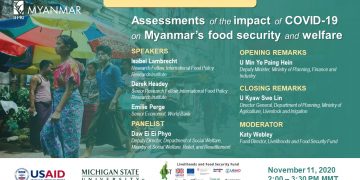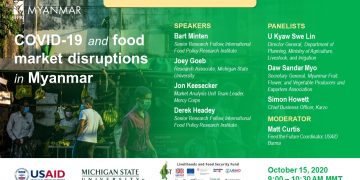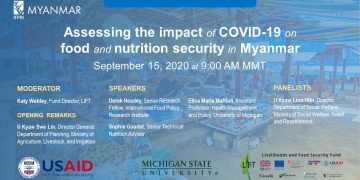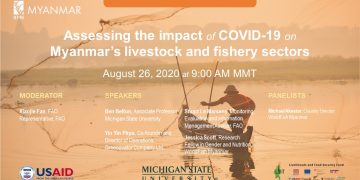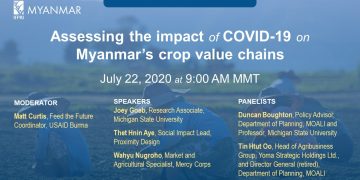The second wave of COVID-19 brings renewed economic disruptions and poses new challenges for efforts to avert poverty, food insecurity, and malnutrition. In this seminar, policymakers and partners discuss the impacts of the second wave and highlight actions for social protection and economic recovery.
The pandemic’s effects on food markets in Myanmar
The rise of COVID-19 infections and the policies imposed to limit the spread of the disease have created significant food market disruptions. In this policy seminar, Myanmar policymakers and development partners discuss the pandemic's impact on food vendors and the actions needed to minimize disruptions
What are COVID-19’s impacts on food and nutrition security in Myanmar?
The economic impacts of COVID-19 are threatening the food security of vulnerable households. In this policy seminar, Myanmar policymakers and development partners discuss the current welfare of Myanmar households and highlight the positive impacts of maternal and child cash transfers on nutritional care.
How does COVID-19 affect Myanmar’s livestock and fishery sectors?
Myanmar’s livestock and fishery sectors are crucial to the livelihoods of many vulnerable households and are an important dimension in improving nutritional outcomes in the country. Watch our recap of IFPRI's August 26th policy seminar discussing the impacts of COVID-19 on these sectors and on the consumption of animal-sourced foods.
How have Myanmar’s crop value chains been changed by COVID-19?
Experience with COVID-19 in many countries has revealed the vulnerability of agri-food value chains to disruption arising from income loss and restrictions on the movement of produce, workers, and service providers. In this July 22nd virtual policy seminar, IFPRI and development partners discuss recent surveys on Myanmar’s agri-food value chains and highlight possible actions to support crop value chains.
